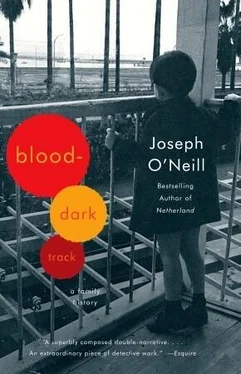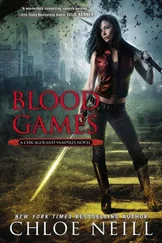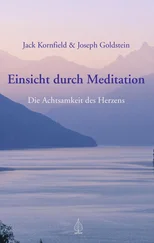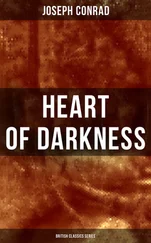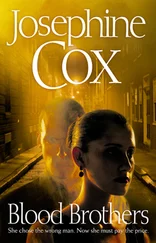We arrived home. While Grandma went upstairs, I waited in the kitchen, the hub of the house and its point of entry, through the back door, for family and friends. Small pictures hung on the wall: reproduction paintings of a basket of peaches and a basket of strawberries, a photograph of a sunset at sea seen through reeds, and two watercolours of birds. Pope John Paul II appeared in a white frame, and a porcelain wall-figurine of the Virgin Mary kissing the baby Jesus. Also displayed were postcards from children and grandchildren mailed from Aqaba, New York, Santander, Youghal, Lanzarote, Portugal, Bretagne, Majorca. The family horizons were expanding. Above the table hung the text of a house blessing:
God bless the corners of this house,
And be the lintel blest;
And bless the hearth and bless the board
And bless each door that opens wide
To stranger as to kin;
And bless each crystal window pane
That lets the starlight in;
And bless the roof tree overhead
And every sturdy wall.
The peace of man, the peace of God,
The peace of love on all.
This was what a republican safe house looked like: it was here that Grandma, on a couple of occasions after her husband’s death, gave refuge, without the family’s knowledge, to republicans — ‘proper gentlemen’, in her recollection — wanted by the authorities in connection with acts of extreme political violence.
When Grandma returned to the kitchen, we drank a cup of tea and ate bread and butter and ham. We talked about various things, and gradually we came back to the topic of my grandfather. Grandma said that in the ’sixties, when they were living here, the two would go off to Bodenstown and other republican commemorations and marches together. In about 1970, they went to the North with a party from the south. Jim and Eileen and the others crossed the border at Monaghan on foot with a tricolour held before them and repaired a road that had been cratered in an attempt to close down the border crossing. A British army helicopter flew overhead as they worked. It fell to Jim O’Neill, the senior republican present, to address some remarks to the volunteer road-gang; and he did so. The party headed back that evening on the bus, singing songs. When she got home, Grandma removed her boots and hung them in the shed with the Northern mud still sticking to them. The boots hung untouched for years, a monument to the unvanquishable urge for freedom and, it turned out, to the only time my grandfather set foot north of the border.
Grandma told me this story and then, going into a declamatory trance, she looked me in the eye and said, without hesitation:
Who is Ireland’s enemy?
Not Germany nor Austria,
Nor Russia, France nor Spain
That robbed and reaved this land of ours,
That forged her rusty chain
But England of the wily words
A crafty, treacherous foe.
’Twas England scourged our motherland,
’Twas England laid her low.
I thought that she had finished, but there was more to come:
And rouse her living men,
The chance will come to us at last
To win our own again;
To sweep the English enemy
From hill and glen and bay,
And in your name, O holy dead
Our secret debt to pay!
There was a silence, and eventually I asked Grandma whether Jim, if he could have his time again, would do anything differently. ‘No,’ my grandmother said, ‘I don’t think so.’ She gave the question a moment’s further reflection and then, in a twist I hadn’t at all expected, added, ‘Like his father, he was a very intelligent man. If he were alive today, with all the education and opportunities that you now have.…’ My grandmother wrinkled her mouth pensively.
I was slightly taken aback. For all of her political passion and her doubts about the country’s new money culture and her stories of the Black and Tans and her photographs of her husband’s IRA burial, for all of her investment in her husband’s configuration as an IRA hero, my grandmother, in what seemed to be the final analysis, was dwelling on Jim O’Neill’s life in economic terms and contemplating, somewhat wistfully, the affluent and fulfilling life that, in more opportune times, he might have led. Was she tacitly acknowledging that in different circumstances her husband might have left the business of revolution to others? After all, if Jim had stood to inherit Ardkitt, would he have risked years of imprisonment and separation from his farm? Or would he, like the vast majority of the Cork farming class, have been diverted from active service in the IRA by the demands and preoccupations of country life — a life of ploughing championships, carts and harnesses, colts, hens, heifers, horses, cows, potatoes, wheat seeds, whist drives, of dropping in on Enniskean Hall for a party thrown by the Newcestown, Ballineen and Enniskean Coursing Club (music by the Heatherbell Band, dancing 9 to 2) and attending the meetings and dances of the West Cork Branch of the Irish Creamery Managers’ Association, the Clonakilty Agricultural Society, and the Co. Cork Farmers’ Assocation (Ballineen Branch)? This was the lost world that Jim O’Neill dreamed of inhabiting, a world in which a rebel might in good conscience limit his involvement to the cause to making contributions to the Republican Prisoners’ Dependants Fund or turning a blind eye to the dumping of arms on his land.
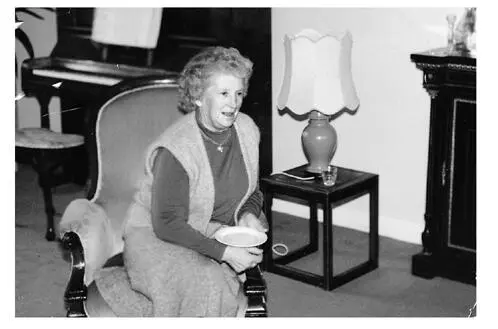
Grandma
If Jim’s political involvement might have been contingent on his social and economic situation, the question arose as to the degree to which his internment at the Curragh, and perhaps even his convictions on the issue of national freedom, were manifestations of a deeper captivity. But what kind of captivity? Poverty was a cage of sorts, certainly; but it was not exclusive to Jim and did not affect him in his last years; and it didn’t fully account for an image of my grandfather that had crept into my mind and would not go away, that of a man who gripped life’s every stick and pole with the white-knuckled rage of a man gripping the bars of a cell.
A day or two after our visit to Castletownshend, Grandma arranged a visit to Peig Lynch. I’d never met Peig, and fixing up the meeting had not been an entirely straightforward business, because there was a sense that over the years Peig had held herself — and her late husband Jack, an easy-going, convivial man if left to his own devices — at a distance from the O’Neill/Lynch axis of the family. (Jack had died in 1990, aged 83. His Mass card read, ‘All I ask of you is that wherever you may be you will always remember me at the altar of God.’) Nonetheless, Grandma and I received a very cordial welcome from Peig, an irreverent, sharp, slightly dramatic woman who refused to disclose her age and hobbled along with the help of a black cane and shot out crafty, knowing glances as she spoke; it interested her that I was a lawyer and that I was writing a book. Peig was an amateur painter, and numerous examples of her work hung on the walls of the living-room where we sat.
Peig came from Crossbarry, the West Cork village best known as the scene of another famous ambush by Tom Barry and his men. Her father, a teacher, and mother died young, and Peig was brought up by an aunt and grandmother. Although not from a republican family — ‘They were interested in the price of cows and eggs,’ Peig said — she grew up in a highly politicized world. ‘There was nothing else spoken of in Crossbarry but politics. I thought Easter was to celebrate the Rising; I knew nothing about the resurrection.’ At any rate, she was ‘very much aware of the political situation’ when she met Jack Lynch, in Clonakilty, in around 1941, just over a year or so after he’d returned from active service in the English bombing campaign. The young couple, who were not to marry until 1949, had different ideological positions. ‘I was more of a trade unionist, or socialist, than a nationalist, whereas Jack was very military in his outlook,’ Peig said, before adding, as a mischievous concession, ‘ — although he did think a bit .’ Jack was on the run when he and Peig started going together, and it wasn’t long before he was arrested and locked up — first at Mountjoy, then at Arbour Hill, then at the Curragh. ‘He was a grand subject for jail,’ Peig said. ‘He didn’t think of the outside until he got out.’
Читать дальше
Конец ознакомительного отрывка
Купить книгу
